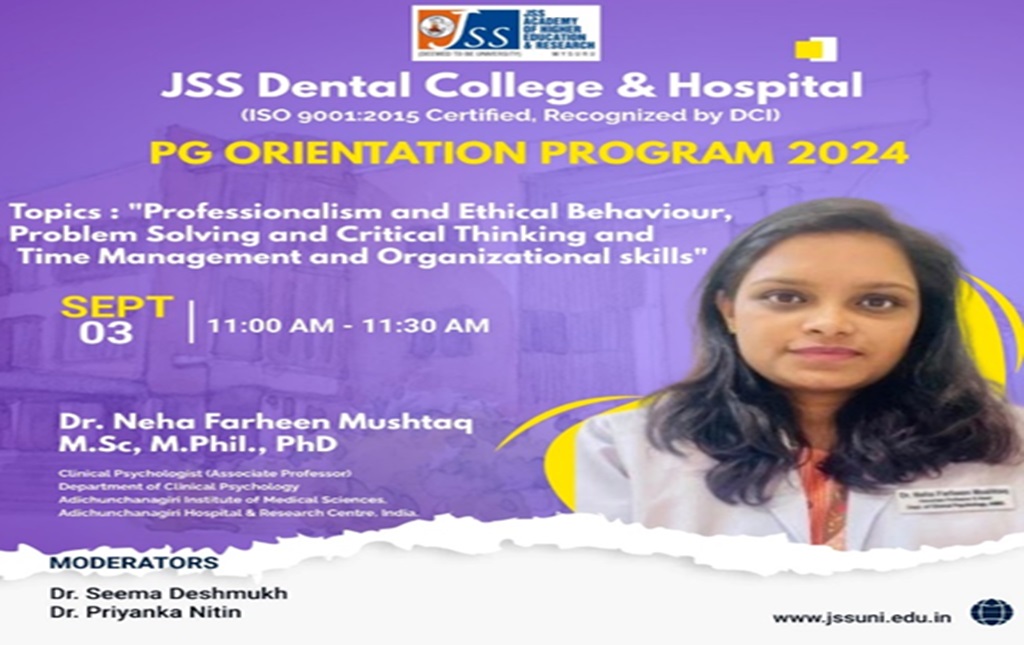JSS Dental College & Hospital
Professionalism, Ethical Behavior, Critical Thinking, Time Management, and Organizational Skills

On the 3rd of September, 2024, the Postgraduate (PG) Orientation Program at JSS Dental College & Hospital featured an insightful session by Dr. Neha from the Department of Psychology, Bellur. Her talk, titled 'Professionalism, Ethical Behavior, Critical Thinking, Time Management, and Organizational Skills,' was aimed at equipping new postgraduate students with essential skills that are crucial for their academic and professional success
Introduction to Core Professional SkillsDr. Neha began by emphasizing the importance of cultivating core professional skills early in one's academic career. She noted that postgraduate studies are not only about acquiring knowledge but also about developing the habits and behaviors that will define students’ future careers. She highlighted that professionalism, ethical behavior, critical thinking, time management, and organizational skills are interconnected and foundational to achieving success in any field, particularly in the demanding environment of dental education and practice
Professionalism and Ethical BehaviorDr. Neha underscored the significance of professionalism, highlighting the need for students to demonstrate respect, responsibility, and integrity in all their interactions, whether with peers, faculty, or patients. Ethical behavior, was another focal point of her talk. Dr. Neha stressed that ethical dilemmas are inevitable in the healthcare field, and students must be prepared to navigate them thoughtfully. She discussed the importance of adhering to ethical principles such as confidentiality, informed consent, and honesty
In the context of dental education, she emphasized that critical thinking allows students to evaluate research, diagnose complex cases, and develop treatment plans that are both effective and evidence-based. Dr. Neha then turned her attention to time management and organizational skills, which she described as essential for balancing the various demands of postgraduate education. She acknowledged that PG students often face a heavy workload, including lectures, clinical duties, research, and personal responsibilities. To manage these effectively, she advised students to prioritize tasks, set realistic goals, and create structured schedules. She emphasized that good organizational skills not only help in meeting deadlines but also reduce stress and improve overall productivity
In her concluding remarks, Dr. Neha encouraged students to view these skills not in isolation but as interconnected elements that, when integrated, form the foundation for a successful academic and professional career. She urged students to actively work on developing these skills throughout their postgraduate studies, as they will not only help in achieving academic excellence but also prepare them for the challenges of professional life

